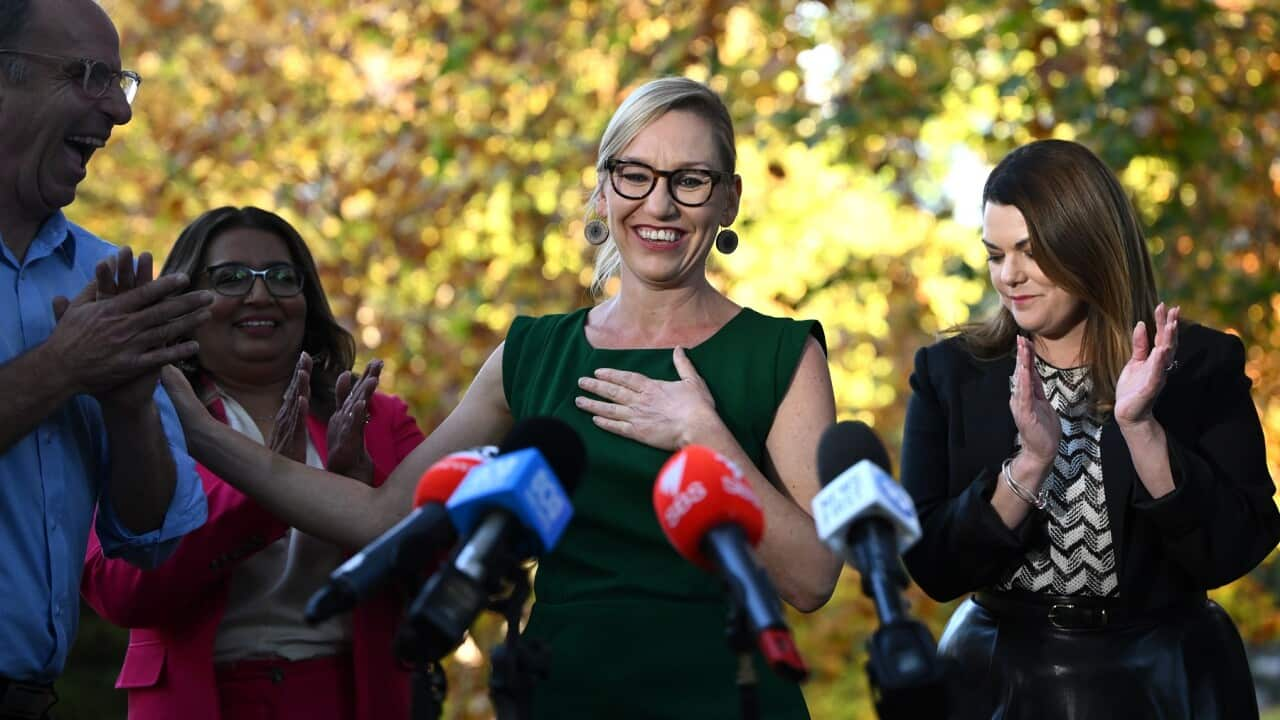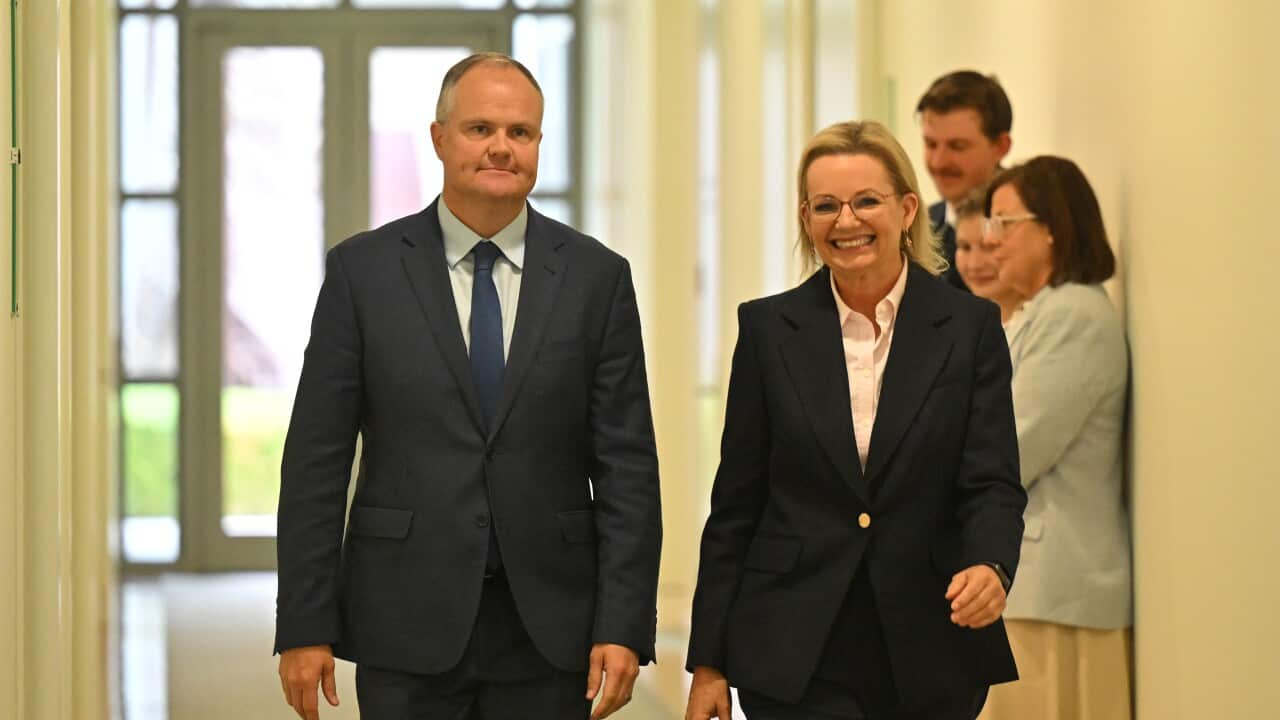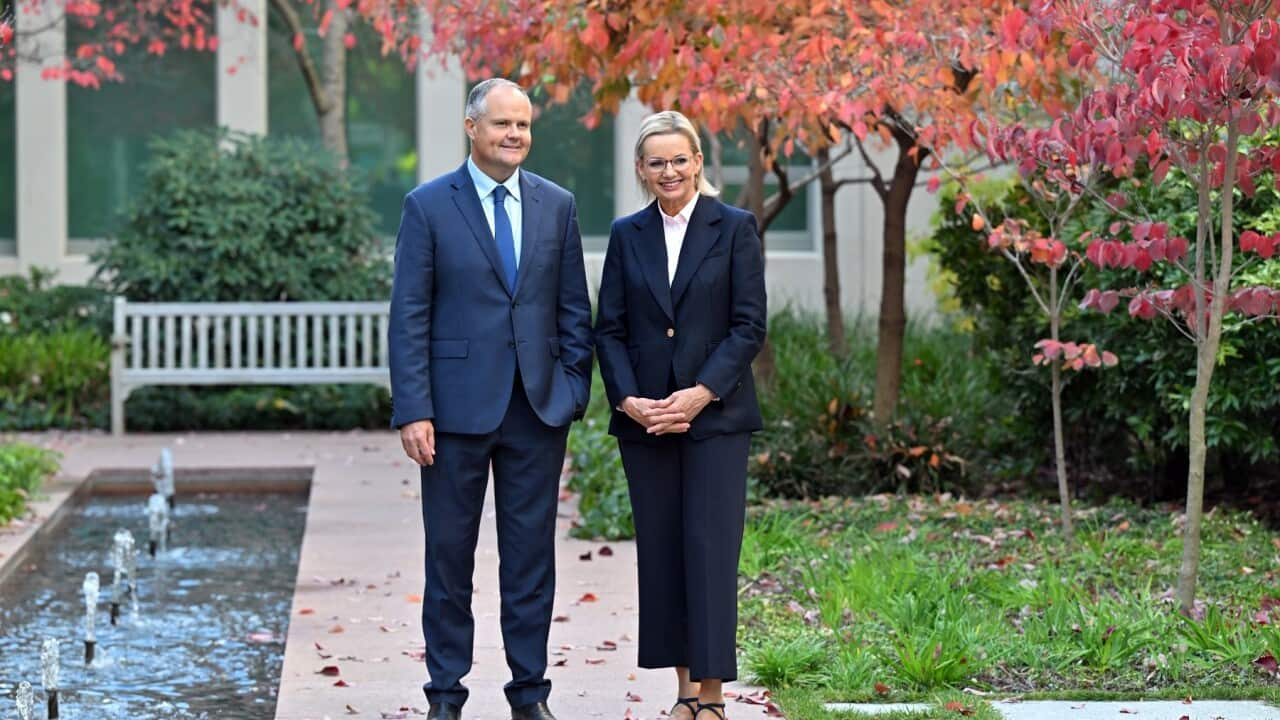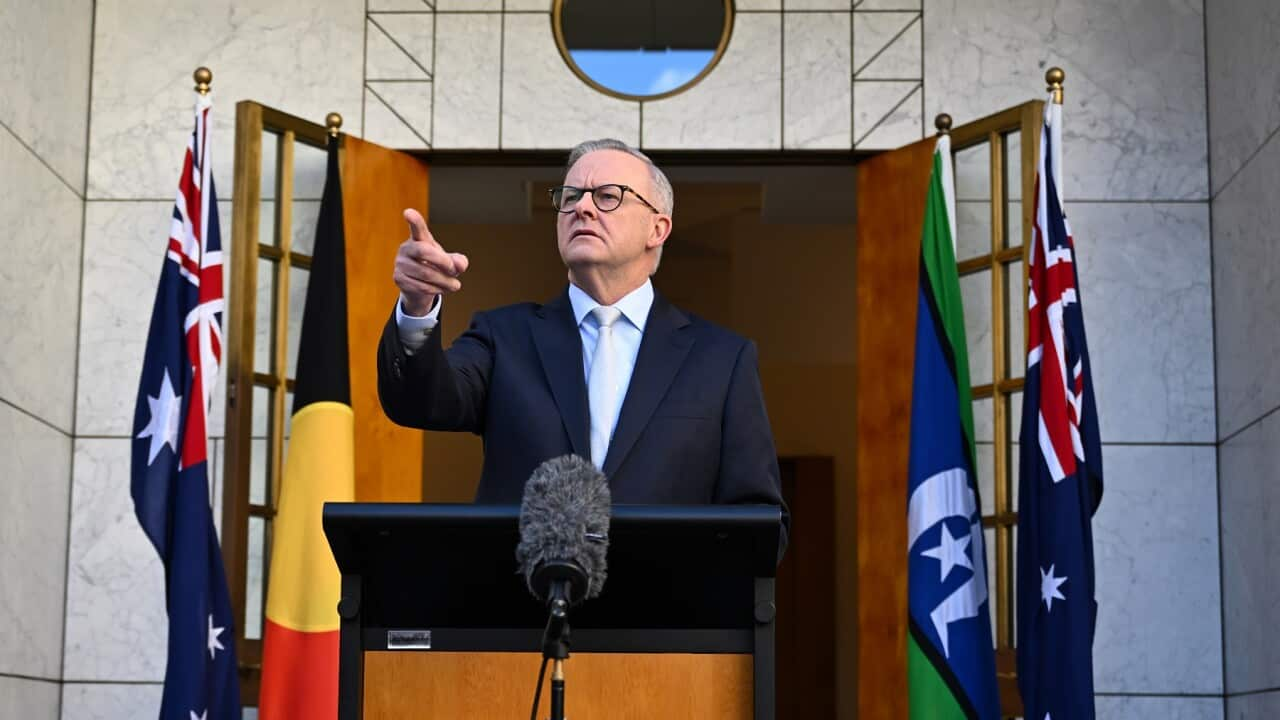XXX
TRANSCRIPT:
In Ramingining, Arnhem Land, crocs, culture and community are colliding with the upcoming federal election.
At the centre of it all?
Competing visions for Indigenous economic development, housing, and what it actually means to close the gap.
"Look at that, look at them looking. Look at him, he's ready to jump. (Laughter) He's ready to jump."]]
That laughter came from federal Labor MPs who are visiting the Arafura Swamp Ranger Program, a federally funded initiative blending traditional ecological knowledge with modern environmental management.
Rexy Djarrkadama is an Arafura Swamp senior ranger.
He has a baby croc in hand, showing it to Malarndirri McCarthy and Marion Scrymgour.
"When we are collecting eggs, collecting eggs, we use a traditional way because we can commit our self to them, talk to them and say hello to the country where we are."
The program isn't just about crocs, it’s about careers, jobs created on Country that provide local school-leavers with an alternative to welfare dependency.
"I like it and it's good creating more jobs for people that are coming up from school, this is the best you know. I reckon its best job in the Rangers. I like it, because I have been working many different jobs that I didn't like it. I reckon Rangers is the best one."
Labor’s pledge is to double the number of Indigenous rangers by the end of the decade.
It’s a strategy Minister for Indigenous Australians Malarndirri McCarthy says is about worthwhile employment.
" It's also about jobs, to be able to have fulfilling jobs, jobs that make you feel worthwhile, jobs that enable you to look after your family, to care for your children, to live a quality of life that you didn't live before. ... It's beautiful to be able to do that in Caring for Country in the ranger program."
But leaving the ranger base, it doesn’t take long to the rough patches—literally.
Roads are broken.
Homes are overcrowded.
And infrastructure? ... Barely holding together.
Peter Djigirr is a Yolngu elder.
"In the wet season time there is a big mob water along the road and sometime we have problem with the car every day it break or we get bogged. All days. So we want good roads to be there so we can drive quick and visit our homeland."
Labor’s vision is clear: economic development, local employment, and community empowerment.
But the Coalition isn’t staying quiet.
Campaigning in Melbourne, Opposition Leader Peter Dutton wouldn’t confirm whether a Coalition government would cut funding from Indigenous Affairs.
Instead, he focused on fiscal prudence.
"Families are under pressure in their own budgets and they expect the government, the federal government, to spend money wisely and so that's the approach that we've taken. The government talks about waste, but they don't do anything about it, so we need to make sure that we've got the most efficient spend of taxpayers' money."
Enter Senator Jacinta Nampijinpa Price, opposition spokeswoman on Indigenous Australians, and one of the Coalition’s most vocal figures on Indigenous policy.
"Simply throwing hundreds of millions of dollars at the issue is not addressing those concerns for me.
So, I've been pretty clear for some time now in that, you know, called for an audit of of the funds that are being spent in the Indigenous Affairs space to determine where the outcomes actually exist and where they're failing. And I also ... in order to do this audit is to provide a level of accountability that I think isn't, hasn't existed for a long time, which is why we've got such a huge, yawning gap."
For Ms Price, the issue isn’t just how much is spent, but where it's going, and what it achieves.
“Grassroots organisations that are clearly providing wonderful outcomes in their communities and really only need a small amount of money to get by, but are being overlooked when it comes to funding provided to them or not being provided through NIAA and so these little places get missed."
It’s a critique of a system she says is riddled with inefficiency.
She questions the reliability of Indigenous data and worries that increasing rates of self-identification may be skewing Closing the Gap outcomes.
But even amid criticism, Senator Price is no stranger to supporting Indigenous-led initiatives, as long as they are delivering results.
"This is something the Coalition is very proud about in terms of the Ranger program, but we want to, again, it'll be part of an audit process as well to ensure that it is the programme is strengthened and it's providing really good outcome for those on country. But again, I'm also aware that, you know, not all, not all indigenous people want to be Rangers. They want to be business entrepreneurs, so it's going to be a priority, but amongst other priorities as well, to ensure that we're growing a wonderful private sector for Indigenous Australians at the same time."
Her message is clear: economic independence should be the endgame.
That means reforming Native Title, empowering Traditional Owners to generate income on their land, and removing bureaucratic obstacles preventing councils, many of which are 100 per cent Indigenous, from accessing funding.
As for housing?
Ms Price is equally concerned about the high cost of remote builds, sometimes $1.5 million for a single home.
She’s promising to revisit existing agreements and deliver better value for money.
And on road infrastructure?
"Right now. I mean, I know we in the Northern Territory are pretty upset at the very little that's been provided in the budget for territory roads, which is just about maintenance. Really nothing, nothing new there in terms of supporting road infrastructure. .. We know how important road infrastructure is right around the country for access, you know, for communities in terms of freight, in terms of addressing the cost of living issue as well. That's important for those communities."
So, what’s the choice before voters in places like Ramingining?
On one side, Labor is leaning on symbolism and long-term investment, tying cultural heritage to economic empowerment.
On the other, the Coalition, led by Jacinta Price in this area, is pushing for a tougher, outcomes-driven approach.
“My focus is to close the gap, is to address the needs of particularly our most marginalised Indigenous Australians. I recognise that there are many, many of us who are doing particularly well with our lives, but as a priority, there are many Indigenous Australians in this country, those who can't read and write, those who, you know, first language is not English, and we need to bring them up to the same level as those of us who are doing particularly well in this country."
Two visions.
One shared goal.
As the election looms, both parties are campaigning, battling not just for votes, but for trust.
And maybe that’s what matters most in communities like this one.
Trust that promises will be kept, that funding will reach the frontlines, and that Indigenous Australians won’t be forgotten once the campaign trail fades.













